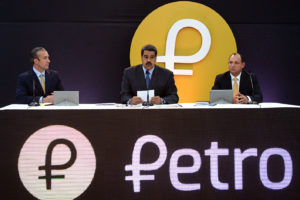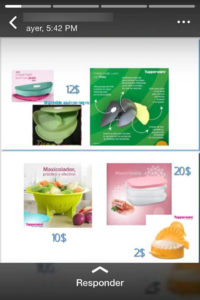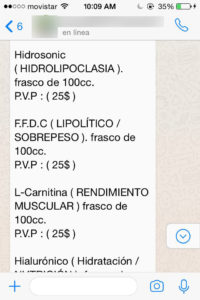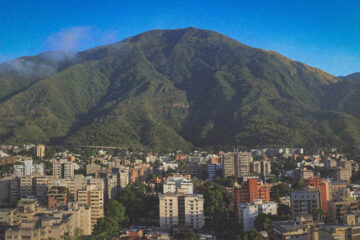The taboo of the ‘almighty’ Dollar is one of the byproducts spawned out of 20 years of Bolivarian Revolution in Venezuela; heck, just the mere mention of the word can cause quite the array of emotions down here.
It’s been sixteen years since we last had the ability to freely exchange currencies with the outside world. Back in 2001 my mother traveled to America in order to attend a medical conference in San Diego; I still remember walking to an exchange booth inside the airport with my uncle and exchanging what little cash I had in my wallet for a single Dollar just for the childish novelty of it — to this day I still have that ‘lucky’ dollar in my wallet.
That’s not something you can freely do in Venezuela, not for the longest time. Buying or selling foreign currency has been a shady but necessary practice, always shrouded in secrecy, at the fringes of legality yet hidden in plain sight—everyone knows it, but no one openly talks about it.
The fierce currency controls that were first established in 2003 have evolved for the worse with the passage of time, and their draconian nature gave forth to one of the most absurdly corrupt systems in human history.
All legal foreign currency exchange has to be done through the government’s strict and bureaucratic institutions; first via the now defunct CADIVI, then through SITME, then SICAD I, followed by SICAD II, then SIMADI, then CENCOEX, then DIPRO, DICOM, New DICOM, Currency Basket, and recently through the failed scam known as the Petro cryptocurrency.
If all of those acronyms and names seem weird and make no sense to you then—welcome to the corrupt tragedy of the Venezuelan currency control exchange, one of the main reasons of the utter destruction of our economy.
Still, for all of the regime’s efforts and nauseating narratives destined to quell and control the flow of foreign currencies in Venezuela (while stealing absurd amounts of it while at it), the ever so quintessential Dollar has always dictated the course of everything in our country—sometimes in a more clandestine and illegal way depending on the regulations of the time.
Mentioning its name in certain websites was (and continues to be) forbidden, you’d never name it directly via phone calls or texts either — nope, you’d refer to it with codenames such as the Lettuce, the greens, or in recent times: Trumps.
With the recent easing up of the currency controls that took place in September 2018, and the latest ones introduced this week, the word “Dollar” is no longer the unspeakable taboo that it used to be.
There’s less fear of openly offering goods and services in foreign cash, because let’s face it, who in their right mind would want Bolivares today when that currency is beyond dead.
With the banking network down during the long blackouts that took place weeks ago the Bolivar was effectively rendered unusable until the network was back online, that incident unwillingly marked a shift towards a more open foreign currency everyday dynamic.
It is now common to see people pay for groceries at a supermarket using Dollars, to see people advertising anything and everything, from eggs to appliances in USD, or in these two randomly selected examples: Tupperware products and medical supplies.
(For obvious reasons, I’ve blurred the names of these two contacts)
Be it via remittance, direct payments, or through other means, foreign currency is now more than ever the lifeline that allows you to survive through the hyperinflationary disaster of this country, something yours truly can attest to and will eternally be grateful for.
The large majority of the country unfortunately does not have access to the lifesaving Dollar and thus are the ones that are truly suffering through the full onslaught of this socialist catastrophe. This itself presents a weird economical schism in the country: Those that have access to foreign cash and those that do not.
Do not be fooled though, the fact that the fierce controls have been eased (a little damn late I’d say) and that commercial establishments can now accept foreign cash as payment in a less restricted manner doesn’t mean that we’re completely free from the currency controls and the large list of regulations that shriveled and asphyxiated our country’s economy.
The regime never had the intention of removing the controls in the past, it has always been one of their most powerful political weapons; it’s also how they managed to steal an untold amount of billions out of the nation’s reserves, it just so happens that their hand is being forced to loose the grip a bit.
Ironically, by not getting rid of the currency exchange controls when the time was right(due to their astounding arrogance and greed) the corrupt system they’ve uphold for so long has become a double-edged sword that has been instrumental in their demise.
So here we are, in a “yes and no” limbo of free foreign exchange; private banking will soon be able to establish “exchange tables” but the regime has asphyxiated them so hard in recent months that there might not be enough supply of credits nor foreign currency on this nascent system.
The hyperinflation, death of the bolivar, and easing up on some of the most draconian currency controls ever have opened the way for the Dollar in Venezuela. Our economy has all but been officially “Dollarized” yet wages remain anchored to the scam Petro cryptocurrency and paid in Bolivars, you can’t quite survive when most of the monthly wages here equal to less than $10. Nothing is ever straightforward here.
All that talk of being free and sovereign, all that spewed narrative about having a “strong” and independent currency; all of these absurd controls over the past years destined to “save us from the evil America and to free us from the oppression of the Dollar” just to be at it’s mercy more than ever before.
All that just to end up worse than what we were at when they were first established, bravo.
-Kal





